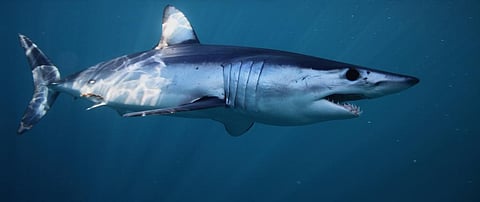

Eighteen species of sharks and rays, threatened by the scale of international trade in their fins and meat, were included in Appendix II of the Convention on International Trade in Endangered Species of Wild Fauna and Flora (CITES) on August 25, 2019.
The decision to include the species in Appendix II was taken at the ongoing 18th Conference of the Parties (CoP18) of CITES in Geneva. The proposals to include the species were passed by a two-thirds majority at the meeting of the 183-member bloc.
The species included in the list are endangered shortfin and longfin mako shark, six species of giant guitarfish and 10 species of wedgefish. Of the giant guitarfish and wedgefish species on the listing, all except one of the wedgefish species are critically endangered.
Warm-blooded makos are the fastest sharks in the sea and travel at speeds which most speedboats cannot compete with.
Giant guitarfishes (named for their guitar-like shape), and wedgefishes are flat-bodied shark-like rays, adapted for living close to the seabed.
The mako sharks listing was passed by 102 votes in support, with 40 against and five abstentions. The giant guitarfishes listing was passed by 109 votes in support, with 30 against and four abstentions, while the wedgefishes listing was passed by 112 votes in support, with 30 against and four abstentions. All votes were taken in secret ballot.
More than half of sharks and their relatives are recognised as being threatened or near threatened with extinction and at least 100 million sharks are killed annually in commercial fisheries.
While much progress has been made to better manage these species globally, around 83 per cent of the international shark fin trade that drives high levels of shark catch is unregulated, leaving these marine animals, which all play a vital role in the ocean ecosystem, in peril.
“An Appendix II listing is an important step, limiting trade to sustainable levels,” Megan O’Toole, senior programme manager for international policy at the International Fund for Animal Welfare or IFAW, said in a press statement.
“This CITES CoP has shown that effective shark management is a global priority for governments, an incredible change from where we were 10 years ago, when shark conservation was seen as a fringe issue,” she added.
CoP18 is scheduled to run until August 28, 2019.